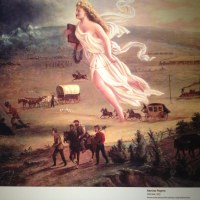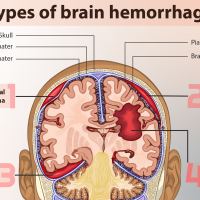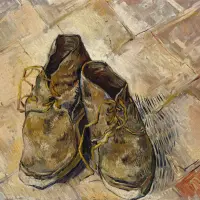Who is Hermes The Greek God? Fun Facts & Mythology About Hermes the Messenger of Gods and God of the Wind
Zoom! This handsome Greek god, who is faster than the speed of wind, is the legendary Hermes. Also known as the messenger of the gods and God of Wind, he delivered important messages and participated in the most number of Greeks myths, such as the Odyssey and Hercules. Hermes is one of the most important 12 gods and goddesses residing in Mount Olympus, including the Greek Goddess Aphrodite, the Greek Goddess Athena, and the Greek God Apollo.

Hermes was born already revealing his cunning and creative personality -he picked up the empty shell of a tortoise and stringed it to make the first lyre after perceiving its use as a sounding equipment. Hermes was a popular god, made friends with almost all of the gods of Olympus, and had unique strengths and weaknesses that defined his exciting life.
The Origins of Hermes: Messenger God
When was Hermes the Greek God born?
- Born in a cave to Zeus and Maia (Pleiades) – Sources vary on when Hermes the Greek God was born. His birthday is known for being the fourth day of the month, and his sacred number is four.
- Traveled to Thessaly
- Stole Apollo’s precious cattle
- Charged as guilty for that deed
- Bribed Apollo with his lyre
- Kept cattle and became friends with Apollo the Sun God
Here’s the story of Hermes’ birth by mythographer Apollodorus in Homeric Hymn to Hermes, describing the birth of Hermes and his theft of the god Apollo’s cattle.
“Maia, after her intercourse with Zeus, bore Hermes in a cave on Kyllene.
Though he was laid out in swaddling-clothes with her winnowing-basket for a cradle, he escaped and made his way to Pieria, where he stole some cattle that Apollon was tending. To keep from being discovered by the tracks, he put boots on their feet and led them to Pylos. He hid them in a grotto, except for two which he sacrificed, pinning up their hides on rocks, boiling some of the meat for his meal and burning the rest.
Outside the cave he found a tortoise feeding. He cleaned it out, and stretched across the shell strings made from the cattle he had sacrificed, and when he had thus devised a lyre he also invented a plectrum.
Meanwhile Apollon reached Pylos in his search for the cattle, and asked the locals about them. They told him that they had indeed seen a boy driving some cattle, but they could not say where they had been driven because there were no tracks to be found. So Apollon learned who the thief was by divine science, and made his way to Maia on Kyllene to charge Hermes. Maia, however, showed Apollon the baby in his swaddling-clothes, whereupon Apollon took him to Zeus and demanded his cattle. When Zeus told Hermes to return them, he denied everything, but since his father would not believe him, he led Apollon to Pylos and gave him back his cattle. Then, when Apollon heard the lyre, he exchanged the cattle for that.
And as Hermes was tending the cattle, this time he fashioned a shepherd’s pipe which he proceeded to play. Covetous also of this, Apollon offered him the golden staff which he held when he herded cattle. But Hermes wanted both the staff and proficiency in the art of prophecy in return for the pipe. So he was taught how to prophesy by means of pebbles, and gave Apollon the pipe.
And Zeus made Hermes his personal herald and messenger of the gods beneath the earth.”

Hermes Also Known As God of:
- Messenger God, Divine Herald, God of the Wind
- Patron of Poetry and Literature
- Also God of thieves, commerce, and eloquence
- God of Dreams, Sports, Travel, Trade
- Became friends with many gods, especially Apollo
- Enemies were Titans
Stories About Hermes The Greek God of Wind:
- Helped with numerous situations
- Odysseus and Calypso
- Argus and Io
- Ares and jar
Mythological Story of Odysseus and Hermes
In Greek mythology, the story of Hermes and Odysseus is one of cunning and trickery. Odysseus, the famous hero of Homer’s epic poem “The Odyssey,” was known for his intelligence and his ability to outsmart his enemies. Hermes, the messenger god and god of thieves, was known for his own cleverness and ability to help or hinder mortals as he saw fit.
One of the most notable interactions between Hermes and Odysseus occurs in “The Odyssey” when Odysseus and his men become trapped on the island of the Cyclops, Polyphemus. Hermes, who is known as the protector of travelers, appears to Odysseus in the form of a young man and advises him on how to escape the Cyclops. He tells Odysseus to give Polyphemus a false name, “Nobody,” so that when the Cyclops calls for help, no one will come to his aid. Hermes also advises Odysseus to blind Polyphemus by burning out his eye with a hot poker.
Hermes also helps Odysseus during his journey home after the fall of Troy. When Odysseus and his men are stranded on the island of the witch-goddess Circe, Hermes comes to Odysseus in a dream and gives him a magical herb called “moly” that will protect him from Circe’s magic. With the herb, Odysseus is able to resist Circe’s spells and turn her into a kind host.
Throughout the story of “The Odyssey,” Hermes is a helper to Odysseus, often providing him with the means to overcome obstacles and continue on his journey. In a way, Hermes’s role in the story is similar to a protector or guardian to Odysseus, helping him to outsmart his enemies and return home safely.
Power of Hermes:
- Guile, trick others
- Eloquently persuade others
- Calmed snakes on his wand of caduceus
- Fast as mercury and the speed of the wind
- Shoes and hat with wings
Relationships of Hermes:
- Had many affairs
- Aphrodite was one of his lovers
- Son = Pan, god of nature
- Daughter/ Son = Hermaphrodites
- Son = Antolycus (grandfather of Odysseus)
Love Story of Hermes and Aphrodite the Goddess of Love
At first, Aphrodite rejected Hermes’ advances, but Zeus felt sorry for Hermes so he decided to help him out! 😉 When Aphrodite bathed in the river called Achelous, Zeus commissioned an eagle to take her sandal to to the Egyptians and gave it to Hermes. When she went to find her sandal and came to Hermes, he took the chance to seduce her in return of her sandal. Then, Hermes rewarded the eagle by placing a constellation in the sky to represent him. The love between Hermes and Aphrodite bore fruit to the birth of Hermaphrodite, their child.

As the son of Zeus, Hermes represented the essential communication line among the gods as the fastest Greek God and God of the Wind. From birth to the rest of his immortal life, Hermes enjoyed helping others with messages and occasionally had some fun with trickery and women. Hermes was friendly with most gods and goddesses and serves as the true messenger of gods.
Read more about the Greek Gods including Athena, Apollo, Poseidon, Aphrodite, and Hermes by checking out these popular articles: the Greek God Hermes, the Greek Goddess Athena, Greek God Poseidon, Greek Goddess Aphrodite, and the Greek God Apollo! Apollo’s love for Daphne remained strong and enduring, and it became one of the most famous love stories in Greek mythology.
| Name | Domain | Symbol |
|---|---|---|
| Zeus | Sky and thunder | Thunderbolt and eagle |
| Poseidon | Sea and earthquakes | Trident |
| Hades | Underworld | Helm of invisibility |
| Athena | Wisdom and warfare | Owl and olive tree |
| Apollo | Music, poetry, and prophecy | Lyre, bow and arrow |
| Artemis | Hunting and virginity | Bow and arrow |
| Ares | War | Spear and shield |
| Aphrodite | Love and beauty | Mirror and dove |
| Hephaestus | Fire and metalworking | Anvil and hammer |
| Hermes | Messengers and travel | Caduceus and winged sandals |
| Dionysus | Wine and fertility | Grapevine and thyrsus |
| Demeter | Agriculture and fertility | Cornucopia and wheat |
Check out these popular articles 🙂
Circulatory System: Blood Flow Pathway Through the Heart
Ectoderm vs Endoderm vs Mesoderm
Circulatory System: Heart Structures and Functions
Ductus Arteriosus Vs Ductus Venosus Vs Foramen Ovale: Fetal Heart Circulation
Cardiac Arrhythmias: Definition, Types, Symptoms, and Prevention
Upper Vs Lower Respiratory System: Upper vs Lower Respiratory Tract Infections
Seven General Functions of the Respiratory System
Digestive System Anatomy: Diagram, Organs, Structures, and Functions
Kidney Embryology & Development: Easy Lesson
Autocrine vs Paracrine vs Endocrine: What are the Differences?
Their Eyes Were Watching God: Mule Symbol
Shoulder Abduction Muscles: Medical Anatomy and USMLE
Cell Membrane Dynamics: Flippase vs Floppase vs Scramblase
Cell Membrane Fluidity: Factors That Influence and Increase the Cell Membrane Fluidity
Psychology 101: Crowd Psychology and The Theory of Gustave Le Bon
Introduction to Evolution: Charles Darwin and Alfred Russel Wallace
An Overview of Shorthand: History and Types of Shorthand
Calculus: Two Important Theorems – The Squeeze Theorem and Intermediate Value Theorem
Copyright © 2023 Moosmosis Organization: All Rights Reserved
All rights reserved. This essay first published on moosmosis.org or any portion thereof may not be reproduced or used in any manner whatsoever
without the express written permission of the publisher at moosmosis.org.

Please Like, Share, and Subscribe to our Email List at moosmosis.org, Facebook, Twitter, Youtube to support our open-access youth education initiatives! 🙂
Categories: Creative Writing, education, History, Literature













Great article Athena! Hermes is one of my favorite gods too, along with Poseidon! 🙂
LikeLiked by 2 people
Thank you! Poseidon God of the Sea is one of my faves too
LikeLiked by 2 people
I’m a big fan of Greek myths and going to Greece next summer, fantastic article on Hermes!
LikeLiked by 2 people
Awesome and thanks! Greece is magical. Hope you have a great time there!
LikeLiked by 1 person
Thanks, I’m looking forward to it!
LikeLiked by 1 person
Fun article! I dressed as Hermes for Halloween one time, and roller bladed while trick or treating. Speedy greek god!
LikeLiked by 2 people
Hahaha, wow! God Speed to you, Ben!
LikeLiked by 1 person
Thanks Ben!! Hehe I dressed as Athena! ;D
LikeLiked by 1 person
Great article on the Greek God Hermes! He’s one of my favorites!
LikeLiked by 1 person
Thanks Alex!! Hermes is cool 😀
LikeLiked by 1 person